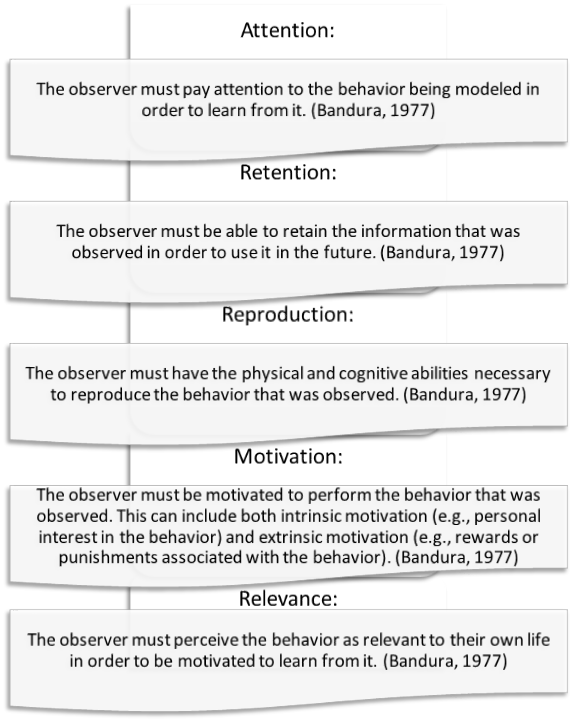Optimal Conditions for Observational Learning
Observational learning, also known as social learning or modelling, refers to the process of acquiring new information or behaviours through observing others. The following conditions have been identified as optimal for observational learning:
- Attention: The observer must observe and learn from the modelled behaviour by paying attention. (Bandura, 1977)
- Retention: The observer must be able to retain the information observed to use it in the future. (Bandura, 1977)
- Reproduction: The observer must have the physical and cognitive abilities necessary to reproduce the observed behaviour. (Bandura, 1977)
- Motivation: The observer must be motivated to perform the observed behaviour. This can include intrinsic motivation (e.g., personal interest in the behaviour) and extrinsic motivation (e.g., rewards or punishments associated with the behaviour). (Bandura, 1977)
- Relevance: The observer must perceive the behaviour as relevant to their own life to be motivated to learn from it. (Bandura, 1977)
References:
- Bandura, A. (1977). Social learning theory. Englewood Cliffs, NJ: Prentice-Hall.
.png)

Comments
Post a Comment
Your Thoughts?